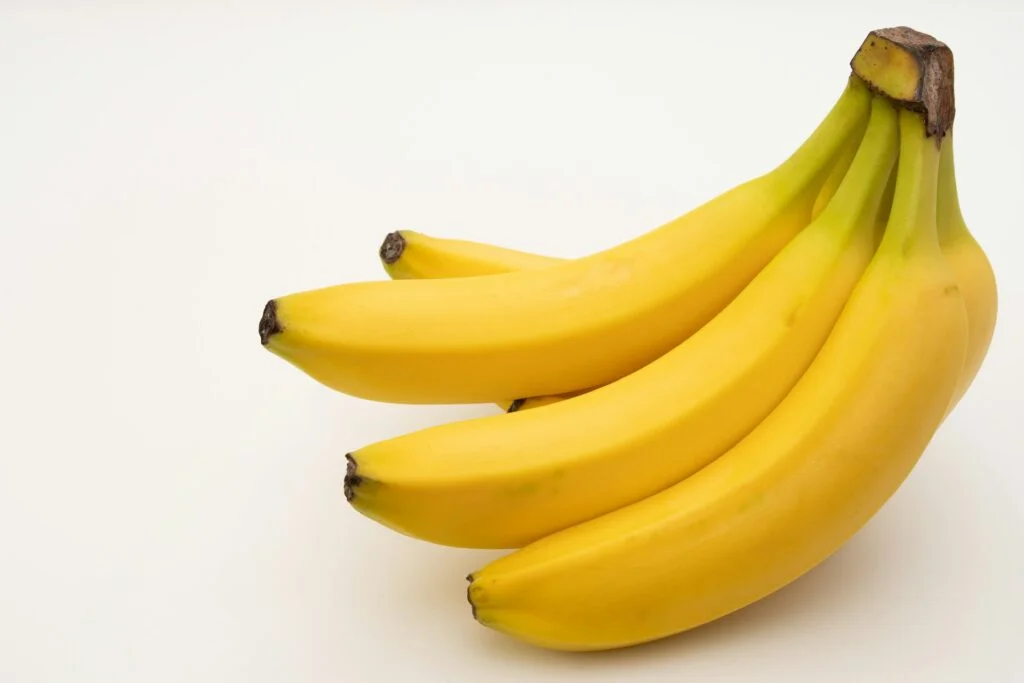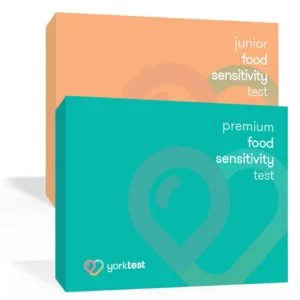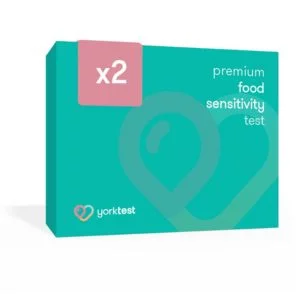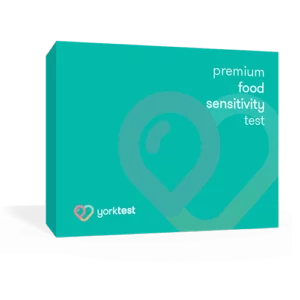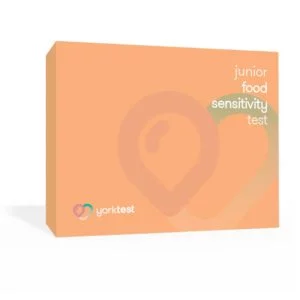- Digestive Health – Are Bananas Good for Diarrhoea?
- Blood Sugar Management – Are Bananas Good for Diabetics?
- Weight Management – Are Bananas Good for Weight Loss?
- Digestive Disorders – Are Bananas Good for Acid Reflux?
- Heart Health – Are Bananas Good for Cholesterol & High Blood Pressure?
- Immune Support – Are Bananas Good for Urinary Tract Infections?
- Hangover Remedies – Are Bananas Good for Hangovers?
- Commonly Asked Questions about Bananas
Bananas are an absolute classic when it comes to fruit. You’d be hard-pressed to find a household in the US that doesn’t have a bunch sitting in the kitchen! These bright yellow beauties are convenient, tasty, and incredibly versatile too – just as good on their own as they are blended into smoothies or baked into treats.
However, bananas aren’t just a delicious snack; they’re also a true nutritional powerhouse packed with vitamins, minerals, fibre, and all sorts of beneficial plant compounds.
In this article we’ll take a look at 7 ways that bananas can benefit your health, ranging from providing energy and aiding digestion to bettering heart health and more!
1. Digestive Health – Are Bananas Good for Diarrhoea?
If you’re dealing with any digestive woes, bananas could be your new best friend as they work wonders for keeping things moving smoothly through your system. If you suffer from constipation, bananas are a great natural solution thanks for their high fibre content which adds bulk to your stool. Just one medium banana provides around 3 grams of fibre, which is a good chunk of your daily needs. The fibre helps to push things along, gently relieving constipation.Â
On the flip side, bananas can also help to ease diarrhoea. When you have an upset stomach causing diarrhoea, your body loses electrolytes and fluids. Bananas are a gentle, easily digestible food that can replenish those lost electrolytes like potassium. Their soft texture is also easy on the stomach.
2. Blood Sugar Management – Are Bananas Good for Diabetics?
You might think that, because bananas are quite sweet, they’re off limits if you have diabetes or need to control your blood sugar, but it’s actually quite the opposite. Bananas can help to keep your blood sugar levels stable and provide you with slow release energy. Despite their natural sugars, bananas have a low glycemic index. This means they release glucose gradually into the bloodstream rather than causing a sudden spike. A ripe banana scores low on the glycemic scale, coming in at around 51. For reference, glucose itself is 100.Â
The fibre, nutrients and density of bananas allows the natural sugars to be absorbed slowly. You get a steady supply of energy without those blood sugar highs and lows. Therefore diabetics can certainly fit bananas into their diet by watching portion sizes. Speaking of energy, bananas are an excellent fuel source for lasting stamina. The mix of natural sugars along with other nutrients like vitamin B6 provides a sustained energy boost. So, the next time you need a pick-me-up, don’t grab high sugar snacks, but reach for a banana instead!
3. Weight Management – Are Bananas Good for Weight Loss?
Bananas deserve a spot in your diet plan whether you’re trying to lose a little bit of weight or maintain a healthy weight. As we know, bananas pack a decent 3 grams of fibre, and fibre is key for creating feelings of satiety – in other words, it helps you feel satisfied after eating. The fibre adds bulk to your meals and snacks so you don’t feel as hungry soon after. They also contain a special type of fibre called resistant starch. This “resistant†starch doesn’t break down like regular starch. Instead, it moves through your gut providing a nice full feeling. Some studies even suggest resistant starch can boost your metabolism slightly.Â
As well as fibre, bananas make a nutritional snack for weight-conscious eaters. A medium banana has about 105 calories along with over 10% of your daily vitamin C, vitamin B6, potassium, and manganese. You’re therefore getting a sweet treat packed with nutrients rather than empty calories.Â
4. Digestive Disorders – Are Bananas Good for Acid Reflux?
If you suffer from acid reflux, an ulcer, or general stomach irritation, bananas could bring some much-needed relief. Bananas are one of the few fruits considered alkaline after digestion. This alkalinity helps to neutralise excess stomach acid that may be causing issues like heartburn or reflux. If you have acid reflux, enjoying a banana can provide a soothing buffer against acidic foods that may trigger symptoms. And if you have a peptic ulcer, bananas are one of the recommended bland, soft foods to incorporate into your diet for healing.
Even if you don’t have a specific digestive disorder, bananas can be an easy choice if you have a sensitive stomach. Their simple, nutrient-dense makeup means they usually get digested without much fuss. When your stomach is feeling upset, a banana can provide sustenance without aggravating it further.
5. Heart Health – Are Bananas Good for Cholesterol & High Blood Pressure?
Bananas contain nutrients that directly benefit your cardiovascular system in several ways. Firstly, bananas are loaded with potassium, with one medium banana containing around 358 mg of potassium! This mineral helps to counteract the effects of sodium in your diet to lower blood pressure levels. The more potassium you consume, the more sodium your body is able to excrete through urine. High blood pressure forces your heart to work harder and puts you at greater risk for heart disease down the line. By getting plenty of potassium from bananas, you’re giving your heart an easier job and reducing strain on your arteries.
However, that’s not the only way in which bananas can help your heart health. They can also help improve your cholesterol numbers. Bananas contain soluble fibre, which can lower LDL “bad” cholesterol levels. Too much LDL buildup can clog arteries and raise heart attack risk. They also provide antioxidants like vitamin C. These antioxidants may help to prevent oxidative stress and inflammation, which contribute to heart disease development.
6. Immune Support – Are Bananas Good for Urinary Tract Infections?
Bananas are a great source of vitamin C – one medium banana provides around 10% of your daily vitamin C needs. Vitamin C is well-known for its role in supporting immune function. It’s an antioxidant that helps to stimulate the formation of antibodies and boost immunity. However, vitamin C isn’t the only immune-boosting antioxidant found in bananas. They also supply vitamin B6, manganese, and various plant compounds like dopamine and catechin. This combination helps to fight oxidative stress within the body, allowing immune cells to function optimally.
Bananas could potentially play a role in preventing and managing urinary tract infections. While more research is still needed, some of the nutrients in bananas are thought to have anti-adherence properties against certain bacteria that cause UTIs, like E. coli. The fibre in bananas may also help to promote regular bowel movements, which allows for better elimination of bacteria before it can travel to the urinary tract.Â
7. Hangover Remedies – Are Bananas Good for Hangovers?
When you’re faced with that dreadful morning after one too many drinks when your body is begging for relief, reach for a banana. When you’re fighting a pounding headache, nausea, and fatigue from overindulging, bananas can replenish what you’ve lost and get you feeling better fast. The key reason? Their high potassium content.Â
Alcohol is a diuretic, which means it causes your body to expel more fluids and electrolytes like potassium through frequent urination. This electrolyte imbalance is what leaves you dehydrated and lethargic the next day. But, the 358 mg of potassium in one banana can help to restock these levels.
The natural sugars in bananas can also help to stabilise low blood sugar levels that often accompany a hangover. Their easy-to-digest nature is gentle on an upset stomach too.
Commonly Asked Questions about Bananas
How many bananas can you eat a day?
For most healthy adults, it’s recommended to enjoy 1-2 medium bananas per day as part of a balanced diet. While nutritious, bananas are higher in natural sugars and calories, so eating too many can lead to weight gain. Aim for 1-2 as a filling snack or as part of a meal.
How do you keep bananas fresh?
To maximise freshness, store bananas at room temperature and away from direct sunlight or heat sources that speed ripening. You can refrigerate fully ripe yellow bananas to slow down the ripening process for 3-4 extra days. The peel may brown but the fruit inside will still be fresh.
Who should avoid eating bananas?
Those with a banana allergy or intolerance should completely avoid them. People with diabetes may need to limit their banana intake, tracking portion sizes carefully to manage blood sugar spikes from the fruit’s natural sugars. Always consult your doctor if you are unsure.Â
How do you ripen bananas quickly?
For faster ripening, place the banana bunch in a paper bag. Adding an apple or tomato to the bag will release even more ethylene gas to speed things up within 1-2 days. This traps the gas to rapidly ripen the bananas.
What vitamins are in bananas?
Bananas are an excellent source of vitamin C, vitamin B6, manganese and potassium. They also supply beneficial antioxidants like dopamine and catechin. One banana covers over 10% of your daily fibre, magnesium and vitamin C needs for a nutrient-packed snack!
What can I make with bananas?
Bananas are very versatile, so you have many options! You can blend them into smoothies, bake them into breads, muffins or pancakes, or use them in fruit salads. Mashed bananas also work great as an egg replacer in baked goods if you’re allergic to eggs.

